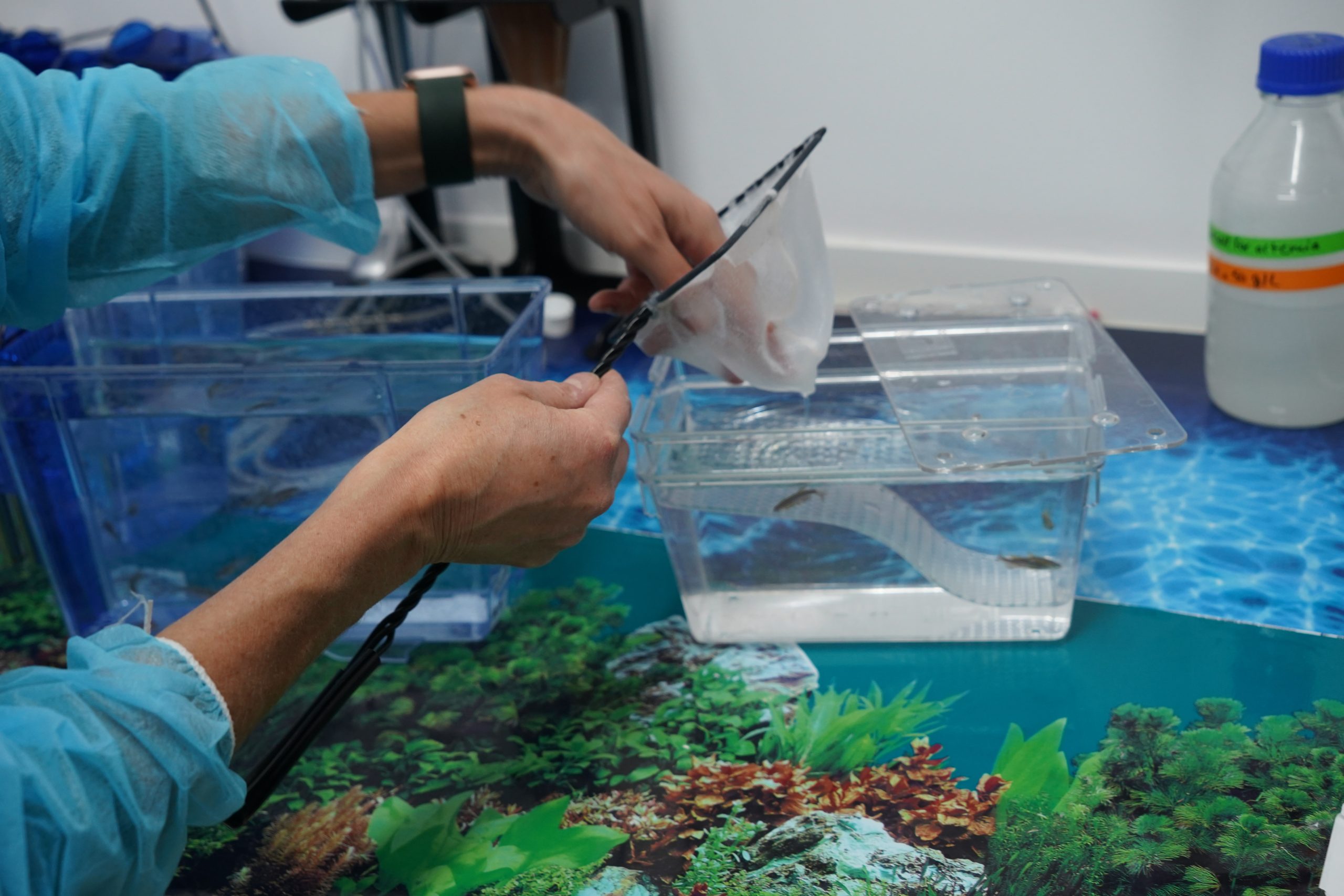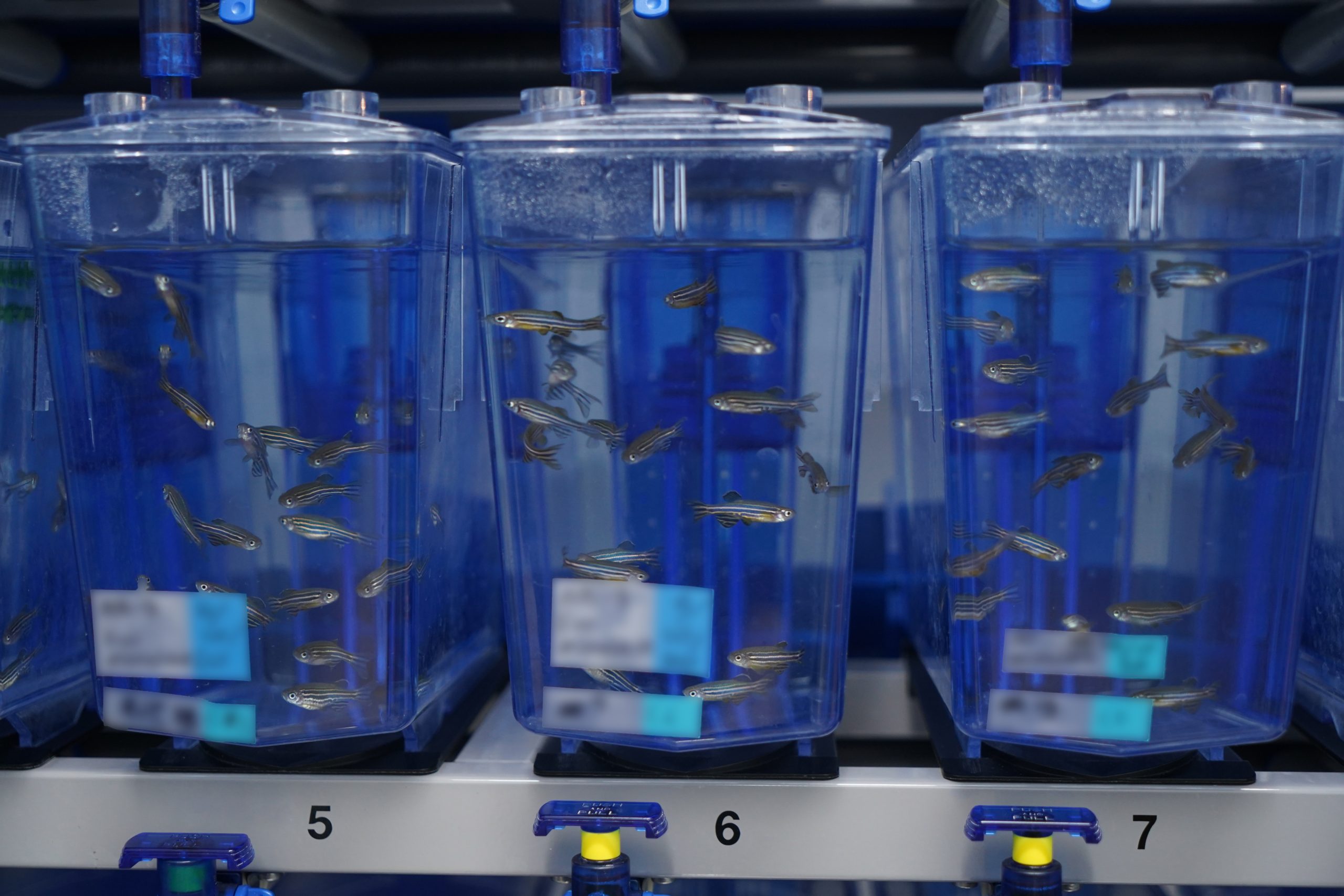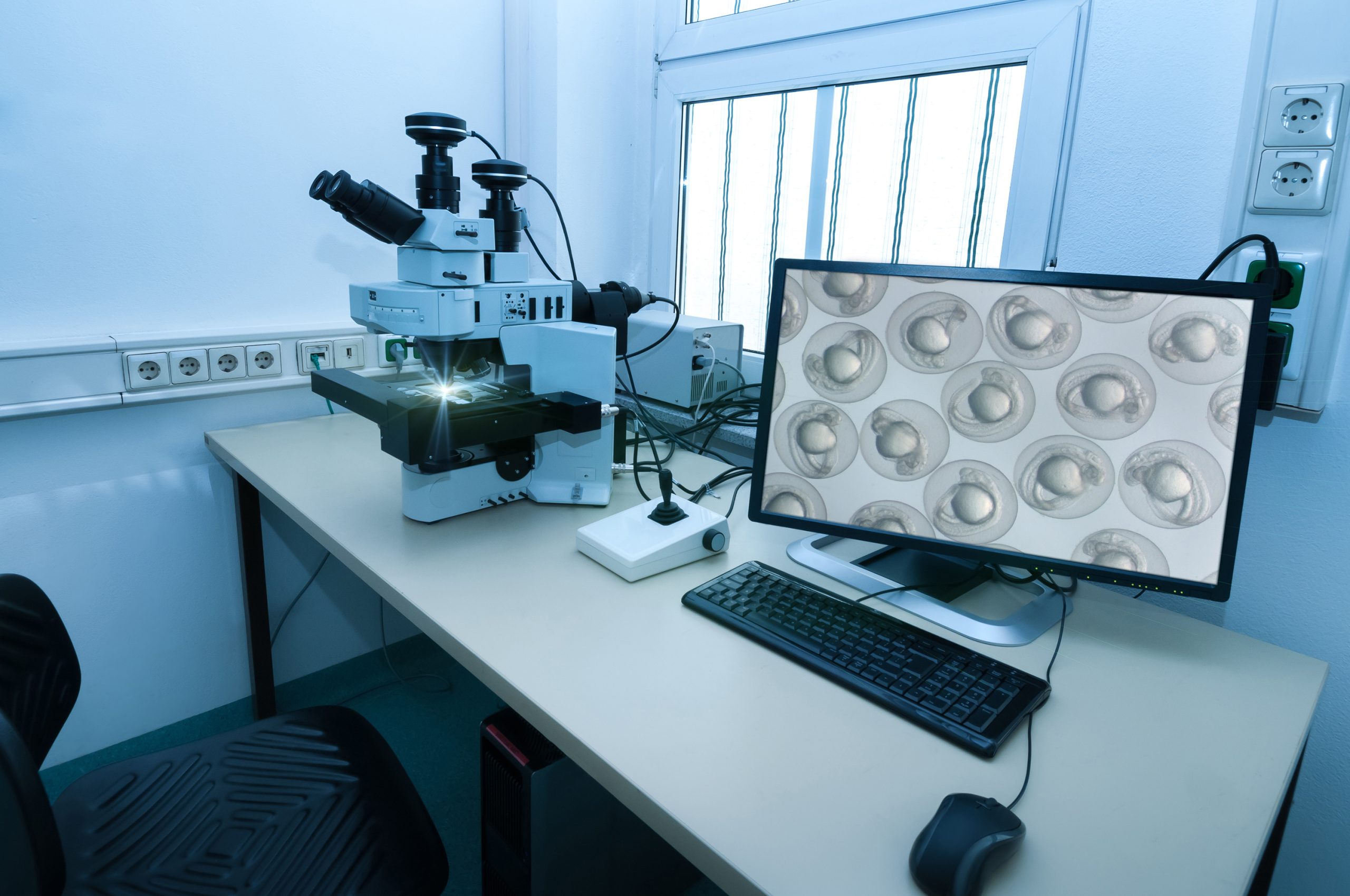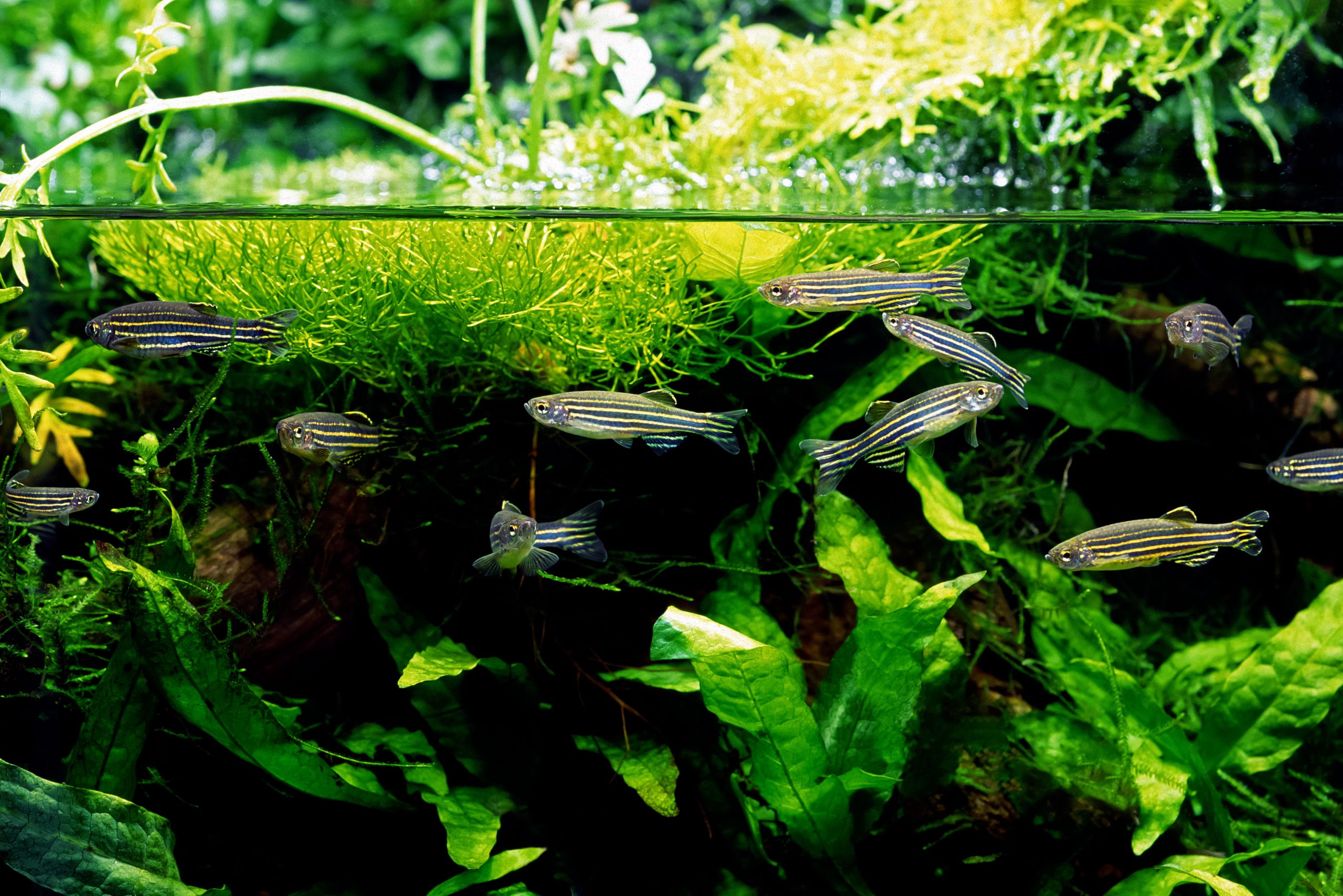Navigating Discovery with Aquatic Excellence
The Tufts Comparative Medicine Services (CMS) Zebrafish and Aquatics Core (ZAC) offers a state-of-the-art facility designed to support a diverse range of aquatic research needs. With a robust infrastructure and extensive capabilities, our facility is equipped to handle both zebrafish and various other aquatic species, providing valuable insights into developmental biology, toxicity, oncology, and more.
Find out more about Cutting-Edge Aquatic Research Facilities below

Zebrafish Research: Our facility boasts a large-scale capacity with over 1,500 zebrafish tanks, enabling high-density housing and streamlined research workflows. The ZAC is designed to facilitate high-fecundity research, leveraging the zebrafish’s transparent embryos and rapid growth for early development studies and various experimental applications.
Aquatic Species Support: In addition to zebrafish, our core supports a range of aquatic species, including but not limited to:
Axolotls
Killifish
Cave Fish
Cichlids
Recirculating Aquaculture Systems (RAS): Our facility features:
Large Self-Automated RAS: Designed for efficient, high-capacity aquatic model maintenance and research.
Smaller RAS: Ideal for specialized or smaller-scale aquatic studies.

Partner with Tufts CMS
Leverage the advanced capabilities of the Tufts CMS Zebrafish and Aquatics Core to enhance your research endeavors. Our facility provides the tools, expertise, and flexibility needed to drive scientific innovation and advance your research goals.

Cost-Effective and Efficient: Zebrafish are smaller and more robust, allowing for higher population densities and reduced costs compared to other models.
High Fecundity: Zebrafish exhibit high reproductive rates with manageable gestation times, facilitating large-scale studies.
Transparent Embryos: The transparency of zebrafish embryos, combined with their rapid growth rates, makes them ideal for early development research and studies related to toxicity, oncology, and nutrition.
Genetic Relevance: With 84% of genes associated with human diseases having zebrafish counterparts, this model provides valuable insights into genetic research and disease mechanisms.
Regenerative Capabilities: Zebrafish possess unique regenerative properties that are highly valuable for comparative medicine research.

In addition to supporting research at Tufts University and affiliated hospitals, the ZAC offers a broad array of contract research services tailored to the needs of biotechnology and pharmaceutical companies. Our expertise and infrastructure enable us to provide high-quality, customized research support across a variety of aquatic models.
Check out how Aquatics can be applied to your research!